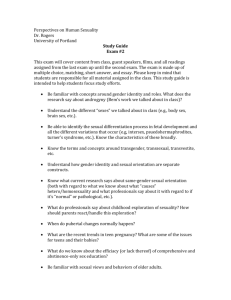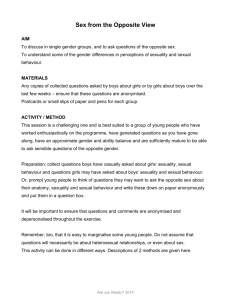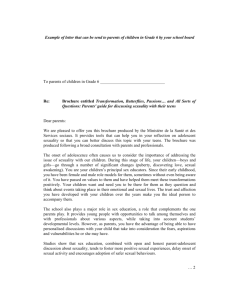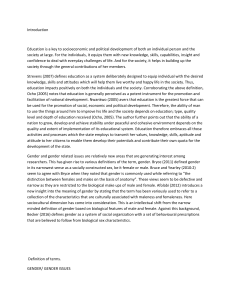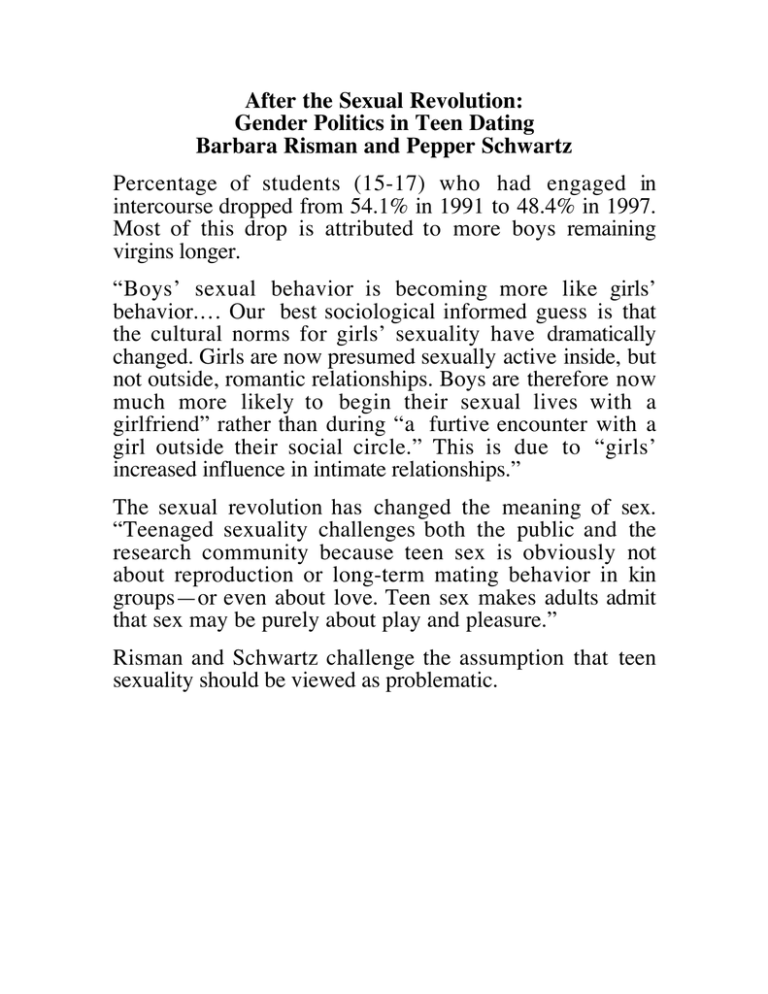
After the Sexual Revolution:
Gender Politics in Teen Dating
Barbara Risman and Pepper Schwartz
Percentage of students (15-17) who had engaged in
intercourse dropped from 54.1% in 1991 to 48.4% in 1997.
Most of this drop is attributed to more boys remaining
virgins longer.
“Boys’ sexual behavior is becoming more like girls’
behavior.… Our best sociological informed guess is that
the cultural norms for girls’ sexuality have dramatically
changed. Girls are now presumed sexually active inside, but
not outside, romantic relationships. Boys are therefore now
much more likely to begin their sexual lives with a
girlfriend” rather than during “a furtive encounter with a
girl outside their social circle.” This is due to “girls’
increased influence in intimate relationships.”
The sexual revolution has changed the meaning of sex.
“Teenaged sexuality challenges both the public and the
research community because teen sex is obviously not
about reproduction or long-term mating behavior in kin
groups—or even about love. Teen sex makes adults admit
that sex may be purely about play and pleasure.”
Risman and Schwartz challenge the assumption that teen
sexuality should be viewed as problematic.





